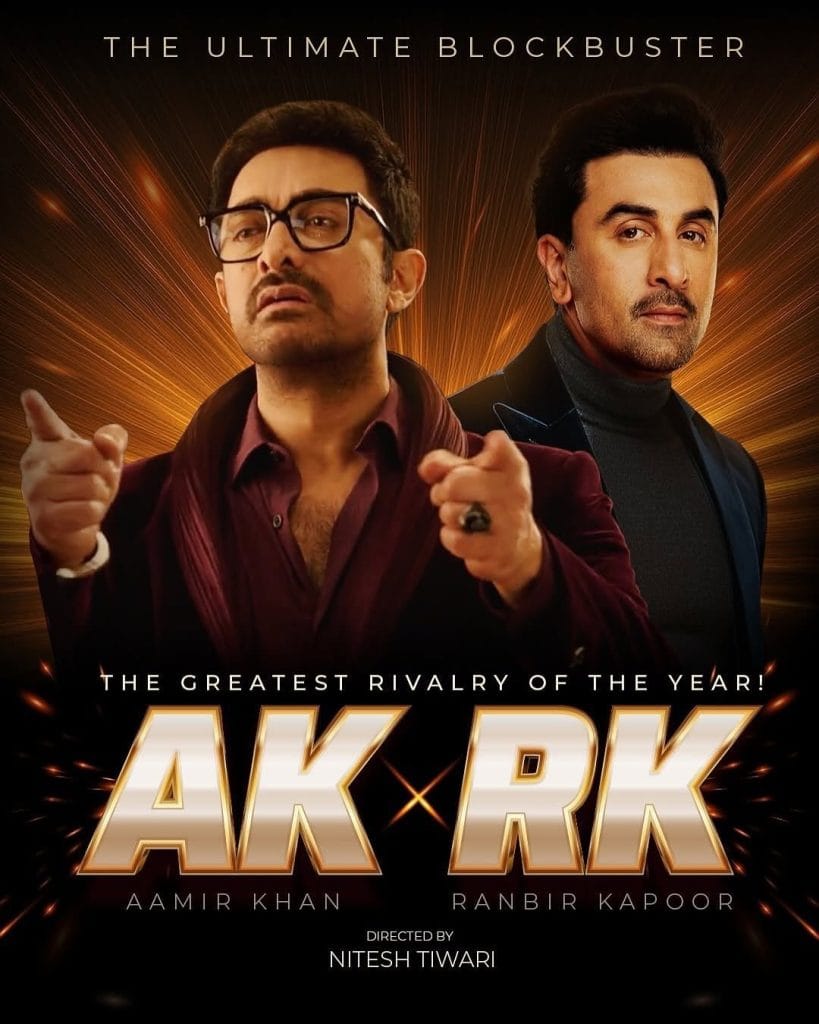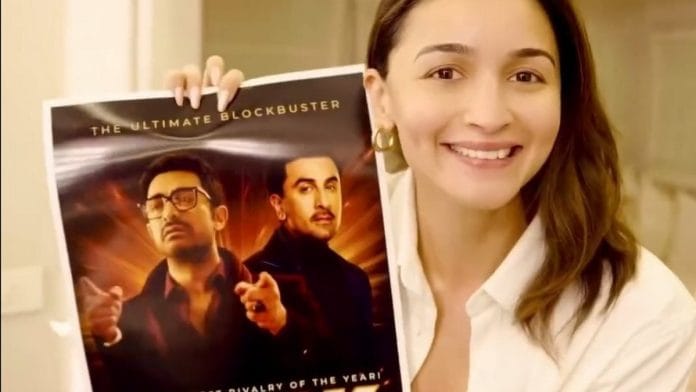Brands have found a hit formula when collaborating with Bollywood. And secrecy is the spice keeping audiences hooked. Essentially, they drop teasers that seem like an impending film announcement, only to reveal an ad. But the recipe is growing stale.
First, it was Yas Island Abu Dhabi teaming up with the Zindagi Na Milegi Dobara cast to promote the travel destination. Now, it’s the fantasy sports platform Dream11. Ahead of the IPL season, Alia Bhatt dropped a poster featuring Aamir Khan and Ranbir Kapoor. While she did include an #ad tag, it barely caught anyone’s attention.
Social media was flooded with excitement at the prospect of the two stars finally working together on a film. And then—boom—it turned out to be a Dream11 campaign.
This time, the commercials turned out to be a hit among audiences, with Aamir and Ranbir taking hilarious digs at each other. The presence of cricketers like Rohit Sharma, Hardik Pandya, and Jasprit Bumrah made it all the more entertaining.

But brands are relying too much on this bait-and-switch to get audiences emotionally engaged and capture attention.
Even King Khan has appeared in a similarly scripted brand promotion. Fans were convinced Shah Rukh Khan was set to play a cop in an upcoming film. A poster of him in uniform, sitting on a bike, was extensively promoted by fan pages.
The anticipation was sky-high—until it was revealed to be just a Castrol ad. The actor is a brand ambassador for the company.
What once felt exciting now feels repetitive and, frankly, lazy. One fan had even written under Hrithik-Farhan-Abhay’s post: “Hope it isn’t another stupid ad.”
Also Read: New Cadbury ad has fresh take on the language debate. Both north and south are impressed
Overstayed tactic
Bollywood nostalgia has become a crutch for brands, with deja vu moments repackaged as ad campaigns—all to generate social media buzz.
But even the curiosity, speculation, and online debates aren’t organic. They’re deliberately manufactured to create hype. Once the campaign is revealed as an ad, the excitement fizzles out, leaving behind nothing memorable except mild disappointment.
Until a few months ago, a misleading teaser might have caught people off guard. Now, it’s a played-out trick. When every celebrity post hints at a major comeback or collaboration, audiences are already sceptical.
Instead of building anticipation, brands are met with eye-rolls and comments like, “Let me guess—another ad?”
The tactic has overstayed its welcome.
These campaigns might trend for a day or two, but they don’t create lasting brand recall.
Once the ‘big reveal’ is over, people move on, perhaps a little more irritated than they were before.
There’s no emotional connection with the product, just a fleeting moment of engagement that rarely converts into actual loyalty or sales.
As they say, fool me once, shame on me, fool me twice…
There’s also the risk of brands and stars losing credibility. If audiences keep getting tricked into thinking a major film is in the works, only to find out it’s an ad for a fintech app or an oil brand, they’ll stop engaging.
Even though the RK vs AK tease worked for Dream11, it’s about time brands realise that Bollywood nostalgia cannot be the only formula for advertising.
Because, audiences are smarter than ever. And easily bored.
(Edited by Asavari Singh)






